The Rolling Stones, ‘Gimme Shelter’
I suppose all old fogies think their Day was special. But it seems pretty obvious and indisputable to me that those years of flower power, Sgt Pepper, and Woodstock hold an interest above and beyond the norm. Last year I gave a lecture to a group of very bright undergrads (on the other side of the world from where the aforementioned events took place) about those times and their music, and the degree of the kids’ expertise was really quite outstanding. They’ve memorized the Jimi Hendrix canon, pored over the Woodstock outtakes films, purchased and re-mastered The Beatles Remastered. Colorful, heady, memorable times, those late ’60s.
But if we’re going to be truthful, all this nostalgia has its ugly underbelly. The Woodstock nation didn’t come into being spontaneously. It was fueled, yes, by babyboomers moving out of the house and into the realms of burgeoning sexual freedom, self-exploration, and idealism. But there was one unsympathetic devil lurking behind all that jingle-jangle—The Draft.
There was a war going on, in Vietnam, and Richard Nixon was trying to send me over there to get myself killed. Here, let’s try to build a scaffolding of pertinent facts.
Throughout 1969, American soldiers were being killed in Vietnam at a rate of 223 a week. Thirty-two soldiers a day. My friends and I were being pursued by the draft to join those figures. At that time, 53% of Americans approved of Nixon’s handling of the war, 30% disapproved. We were among the unbathed minority.
In August, 1969, half a million hippies showed up at Woodstock, seemingly out of nowhere, for 3 days of peace and love and music.
In December, 1969, promoters organized an attempt at a free ‘Woodstock West’ at the Altamont Racetrack in northern California, with The Rolling Stones as headliners. Hell’s Angels were right in front of the stage – according to most versions hired to enforce order, an oxymoronic plan if there ever was one. There was a lot of scuffling and fighting, reaching its peak during the Stones’ set when one Meredith Hunter was stabbed to death after brandishing a gun.
On April 30, 1970, Nixon announced the invasion of Cambodia. Protest strikes broke out on campuses across the country. The strikes were mostly non-violent, and included marches, disruption of classes, and sit-ins in college administration buildings. On May 4 – 51 years ago this week – at Kent State University in northern Ohio, National Guard troops opened fire on protesting students, killing four and wounding 9 others. A week later, two more students were shot and killed at Jackson State College in Mississippi. A wave of violent and non-violent protests swept the country, involving four million students closing more than 450 colleges and sparking marches of 100,000 in Washington and 150,000 in San Francisco. (Thanks for the picture above of the march to my buddie Rod Pennington.)
It has never been conclusively determined if the Guardsmen fired on orders or spontaneously out of frustration.
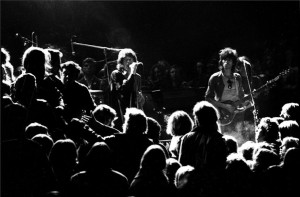 The Kent State massacre was a trauma for us. Our university (in southern Ohio) was shut down immediately, students running as fast and as far as they could. The university was opened especially for a graduation ceremony, probably sometime in June or July. But by then, I was already packing for a country where I felt wanted.
The Kent State massacre was a trauma for us. Our university (in southern Ohio) was shut down immediately, students running as fast and as far as they could. The university was opened especially for a graduation ceremony, probably sometime in June or July. But by then, I was already packing for a country where I felt wanted.
My most vivid memory of the events is, of course, musical. Not, as you might expect, Neil Young’s song ‘Ohio’, which was composed immediately and released only weeks after the events. My memory came in the form of what I believe was a ‘musical hallucination.’ Oliver Sacks devotes an entire long chapter to this phenomenon in his fine book Musicophilia. He asks a patient why she spoke of musical “hallucinations” rather than musical “imagery.” “They are completely unlike each other! They are as different as thinking of music and actually hearing it,” she answered.
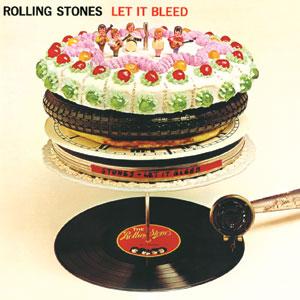 It was the morning after the shootings. I was walking onto campus from my nearby apartment, going towards the administration building to see if it was still being occupied by the protestors. But the campus was abandoned, and my mind was a turmoil of outrage, shock and fear. That’s when I heard the opening bars of the Stones’ ‘Gimme Shelter‘.
It was the morning after the shootings. I was walking onto campus from my nearby apartment, going towards the administration building to see if it was still being occupied by the protestors. But the campus was abandoned, and my mind was a turmoil of outrage, shock and fear. That’s when I heard the opening bars of the Stones’ ‘Gimme Shelter‘.
It’s a remarkable song, demonic, apocalyptic, emblematic of all the evil and ugliness embodied in the events described above.
Oh, a storm is threatening my very life today; If I don’t get some shelter, oh yeah, I’m gonna fade away
War, children, it’s just a shot away, it’s just a shot away…Love, sister, it’s just a kiss away, It’s just a kiss away
The song opens the Stones album “Let It Bleed”, released in November, 1969. It was written by Mick Jagger and Keith Richards together. According to Jagger, “The use of the female voice was the producer’s idea. It would be one of those moments along the lines of ‘I hear a girl on this track – get one on the phone.'” The girl they found was a professional backup singer, Merry Clayton (who at 15 had sung the original version of ‘The Shoop Shoop Song [It’s in His Kiss]”, which later became a hit by Betty Everett and Cher. She had sung on records by Elvis Presley, Burt Bacharach, Tom Jones, Joe Cocker and Carole King. She was one of Ray Charles’ Raelets (“because you have to let Ray…”). Merry was 21 at the recording of ‘Gimme Shelter’.
Rape, murder, it’s just a shot away.
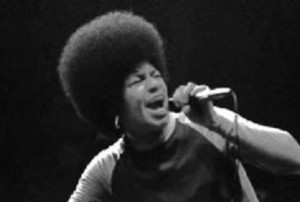 Jagger plays harmonica on it, Nicky Hopkins piano. Brian Jones was already gone. There’s an unreleased version with Richards singing lead. And here’s the song as performed at Altamont. But it’s the end-of-the-world album version that is #38 in Rolling Stone magazine’s 500 Greatest Songs of All Time. It shows up everywhere, from The Simpsons to a video game to three Scorcese Mafia movies to That 70s Show to American Idol.
Jagger plays harmonica on it, Nicky Hopkins piano. Brian Jones was already gone. There’s an unreleased version with Richards singing lead. And here’s the song as performed at Altamont. But it’s the end-of-the-world album version that is #38 in Rolling Stone magazine’s 500 Greatest Songs of All Time. It shows up everywhere, from The Simpsons to a video game to three Scorcese Mafia movies to That 70s Show to American Idol.
What’s the song’s connection to the shootings at Kent State? None, really. Other than I actually heard it, in the Aftermath of the event. And because it’s become universally accepted in the minds of me and my friends and the entire Woodstock nation as emblematic of that terrible time when American soldiers killed American citizens.
If you enjoyed this post, you may also like:
080: Tim Ries w. Norah Jones, ‘Wild Horses’
078: Paul Simon, ‘The Late, Great Johnny Ace’
049: Chrysalis (J. Spider Barbour), “Summer in Your Savage Eyes”


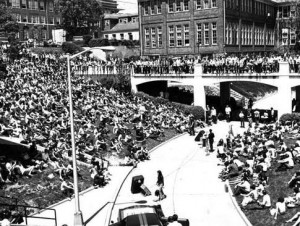
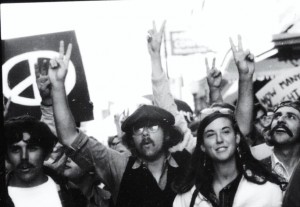
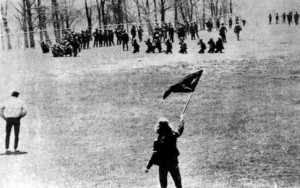
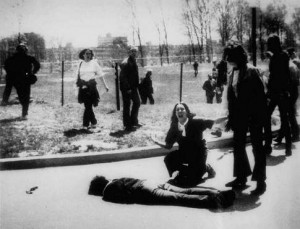
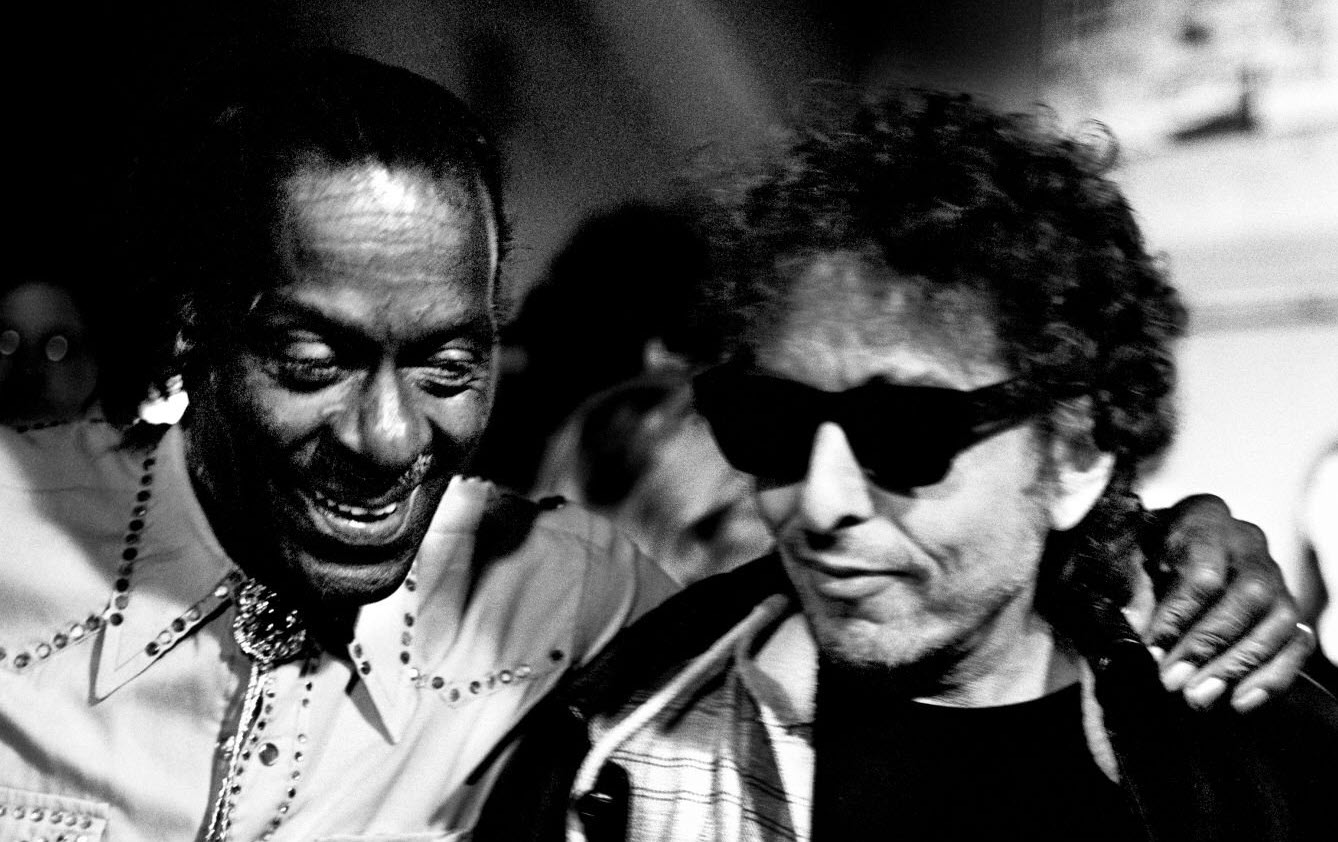


I remember those days only from newspaper articles and was quite happy that I was already far away from those events and from an America that I did not recongnize.
The Stones are eternal.
Great sotw!
An excellent live version from the Paradiso in Amsterdam, mid 1990’s can be found here: http://www.youtube.com/watch?v=2HClhoV2Pd4
Played down tempo reflecting the junkie aesthetic of the lyrics. Mick strutting, Keith and that new guy playing, Charlie impassive as ever and Bill Wyman standing in the shadows. Plus a great performance from the female backup singer.
I know why I didn’t like the Stones of old – yeah, Altamont, it’s the feeling that counts, not the musical precision. Haha. The 1995 version from Amsterdam is really good! But thanks for the post, Jeff. I lately watched a detailed series of French/German TV station Arte about the Vietnam war. And I do understand the upheaval in the US caused by the death and suffering of many of their youth for a doubtful (to say the least) cause.
I honestly never listened that closely to the lyrics of Gimme Shelter. I’m going to go back and do that. That was a very difficult time in the U.S. I was in high school, not particularly involved, but hated our presence in Vietnam. Thanks for the memories..
I appreciated your mention of “musical hallucination”. I had a such an experience myself with the Beatles From Me To You which I encountered blasting out of tattered stereo speakers in Isla Vista, California where I lived while attending UCSB in 1973. It was a private party at one of the beach front houses on Del Playa, legendary for such affairs, and I was wandering despondent about a break up, with a band or a girlfriend, I can’t remember which. I went inside, uninvited. The throb of the beat and the chords, which I’d always loved, spoke to me that night with a tangible intensity and it’s evocation of longing practically lifted me off the ground. I’ll never forget the moment, or the song.
Good posting. My only complaint is that those half a million people at Woodstock were 99% not hippies. They were hippie style. I read Lewis Yablonsky’s book, The Hippie Trip years ago but I have never seen any other lengthy detailed analyses of how the culture came about, what it was, who was in it, how long it lasted and the scope of its influence which seemed profound at the time but was, in fact, probably never very deep.
Love it. Thanks for sharing.